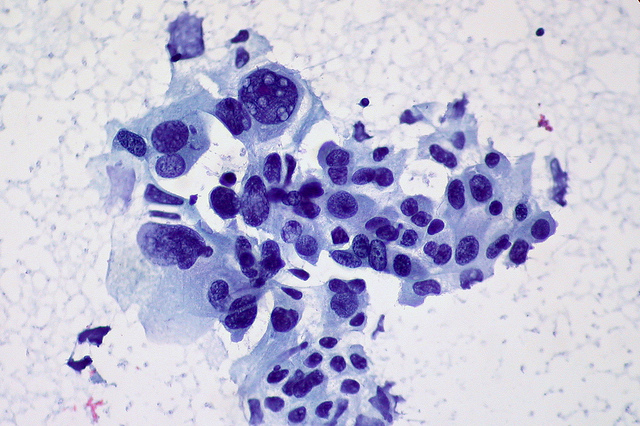
Amgen received FDA approval earlier this year for a drug that targets a rare mutation once deemed “undruggable.” Frontier Medicines is going after the same mutation, but the biotech believes its approach offers an edge and it has raised $88.5 million to build its case.
The Series B round of funding announced Monday was led by Woodline Partners and RA Capital Management, with equal participation by Deerfield Management Company.
The cancer mutation in question is in KRAS, part of the RAS family of genes, which make proteins involved in cell signaling. Activation of this signaling pathway promotes the proliferation and survival of cancer cells. Mutated KRAS proteins have been linked to an estimated 14% of cancers in humans but drugging them has been difficult.
The May FDA approval of Amgen drug Lumakras in non-small cell lung cancer (NSCLC) made it the first therapy approved that targets KRAS, more specifically a mutation called KRAS G12C. This mutation is associated with NSCLC, colorectal carcinoma, and pancreatic cancer. Amgen’s small molecule binds to the target protein while it is inactive, locking it in that state and preventing it from activating the signaling pathway that drives cancer.
South San Francisco-based Frontier Medicines is targeting KRAS G12C with a goal of blocking the protein in either its active or inactive states. According to the company, this approach offers the potential for treating patients who have not responded to a drug that blocks KRAS G12C in its inactive state. The company adds that its therapy could also provide a treatment option for those whose tumors have developed drug resistance.
However, Frontier Medicines is still a long way off from challenging Amgen. The biotech’s KRAS G12C inhibitor program is in the discovery stage. Three additional programs are in development for undisclosed cancer targets. The company plans to use its new cash to advance its entire drug pipeline.
Frontier Medicines launched in 2019 with $67 million in a Series A round of funding, but few details about its drugs or their targets. Last December, the company announced a partnership with AbbVie focused on developing drugs for oncology and immunology. The pharmaceutical giant paid Frontier Medicines $55 million up front.
The research with AbbVie is focusing on drugs that work by targeted protein degradation, an approach that leverages a cell’s built-in system for disposing of old or damaged proteins as a way to get rid of disease-causing proteins. Frontier Medicines could receive more than $1 billion, depending on the progress of the programs covered under the agreement. The biotech’s internal programs, including its KRAS-targeting drugs, are not part of the alliance.
Photo by Flickr user Ed Uthman via a Creative Commons license










